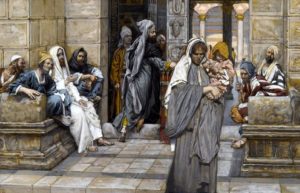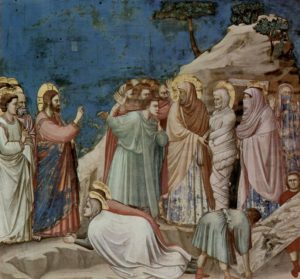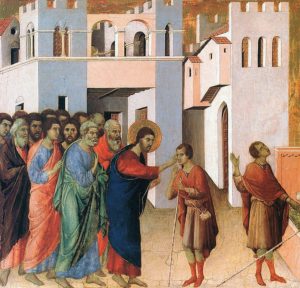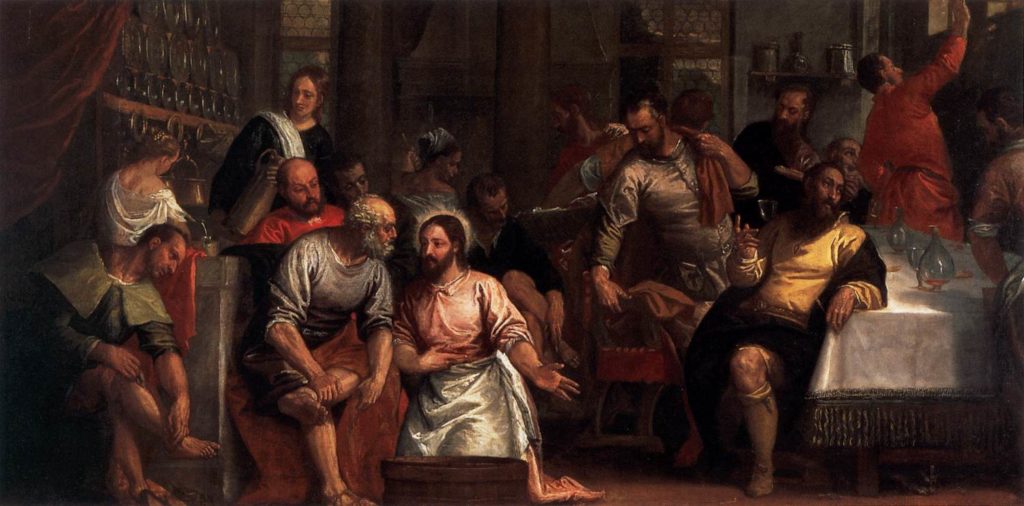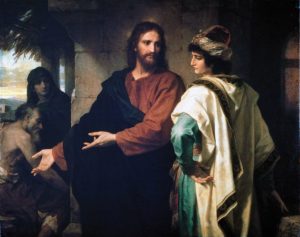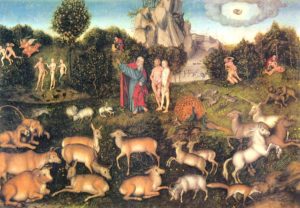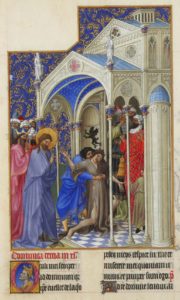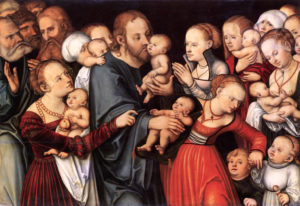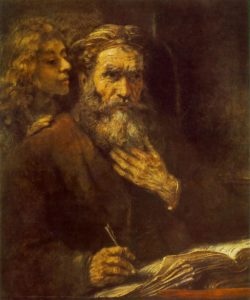Thoughts on Sunday’s Lessons for Nov. 18, 2018
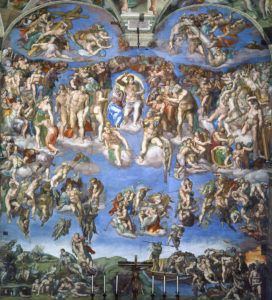
The Last Judgment (1487-1564), fresco by Michelangelo Buonarroti (1475-1564). Sistine Chapel, Vatican City. (Click image to enlarge.)
First Reading (Track One): 1 Samuel 1:4-20
At the beginning of the season after Pentecost this year, we heard several readings about the Prophet Samuel, who followed God’s commands to find the young shepherd David, who would become Israel’s king. Now, as the Pentecost season nears its end, we step back in time to hear the story of Hannah, who is anguished and suffers verbal abuse because she can’t bear a child. She opens her heart in prayer, and finds that God is with us in times of trouble and pain. Her prayers are answered. She finds joy, and later gives birth to Samuel, who will become the last of the great judges who governed Israel before the time of its kings.
First Reading (Track Two): Daniel 12:1-3
The long season of Sundays after Pentecost season is nearing its end for this year. Advent will begin in two weeks, and with it a new lectionary year, as we prepare to celebrate Jesus’ birth on Christmas Day. Sunday’s readings foreshadow a central theme of Advent: our hope of resurrection and new life. Daniel is one of the last books written in the Old Testament. It reflects Israel’s falling under Greek rule some two hundred years before Christ, a period that’s also remembered in the Jewish Hanukkah feast. Sunday’s reading begins with an apocalyptic vision – similar in style to the book of Revelation – that prophecies Israel’s ultimate triumph with the help of the Archangel Michael. It also introduces the idea of bodily resurrection of the dead, the first time that this concept is raised in the Old Testament.
Alternative to the Psalm (Track One): 1 Samuel 2:1-10
In place of a Psalm we sing the prayer of Hannah, mother of the newborn Samuel, who celebrates her joy at the birth of her child. Listen closely to these words of hope and strength and hear how they foreshadow the Magnificat, the song that Mary will sing about God’s gift in Jesus. Both Hannah and Mary sing out praise of God who lifts up the lowly and the poor while casting down the rich and powerful. Mary, however, bearing the child who will become the Prince of Peace, will not repeat the words of vengeance, battle, and judgment of enemies that we hear in Hannah’s song.
Psalm (Track Two): Psalm 16
Just as the reading from Daniel promises a heavenly reward to those who remain faithful, the Psalmist reassures the people that God will not abandon those who always follow God. A different fate awaits the unfaithful, those who follow other gods: They may see their troubles multiplied, and God will not so much as speak the names of their gods. But God will never abandon those who remain faithful. The hearts of the faithful will be glad and their spirits will rejoice.
Second Reading: Hebrews 10:11-14 (15-18) 19-25
We reach the end of our seven-week journey through the letter to the Hebrews. Two chapters remain in the full letter, but this passage concludes its extended narrative about Jesus as the great high priest who offered for all times a single sacrifice superior to those of the old priests in the Temple of Jerusalem. In line with Sunday’s other readings, this passage calls on its readers to hold fast without wavering, provoking each another to love and good deeds, encouraging one another all the more as they see the Day approaching.
Gospel: Mark 13:1-8
Jesus’s words about wars, earthquakes and famines in Sunday’s Gospel give us a taste of the apocalyptic prophecies that will draw our attention through Advent. These verses follow immediately after last week’s account of Jesus watching the poor woman giving her last two coins to the Temple treasury. Jesus, still angered by the hypocrisy of the scribes, utters his own version of an apocalypse, declaring that the Temple will be destroyed, thrown down, not one stone left upon another. As Mark’s Gospel now turns toward the cross, these words will soon be held against Jesus before the Temple’s high priest. As we prepare to celebrate Christ’s incarnation, we remember his death and resurrection.
What are “Track 1” and “Track 2”?
During the long green season after Pentecost, there are two tracks (or strands) each week for Old Testament readings. Within each track, there is a Psalm chosen to accompany the particular lesson.
The Revised Common Lectionary allows us to make use of either of these tracks, but once a track has been selected, it should be followed through to the end of the Pentecost season, rather than jumping back and forth between the two strands.
For more information from LectionaryPage.net, click here.

